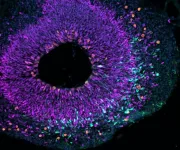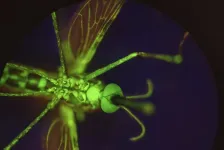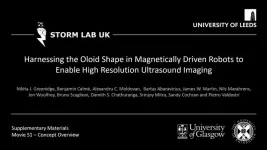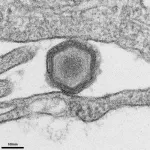“These institutes are leveraging their complementary strengths at a critical moment in biological discovery — when the right combination of technological and scientific expertise can create novel tools to illuminate hidden dynamics of complex systems, like the brain and immune system, to fully understand how they function,” said co-founder and co-CEO of CZI, Priscilla Chan.
Scott Fraser, CZI’s vice president of science grant programs, has accepted the role of president of the Chan Zuckerberg Imaging Institute effective April 1. He will lead the new grand challenge and work with the CZ Imaging Institute, CZ Biohub San Francisco and CZI leaders to lay the groundwork for the two institutes to form a new Biohub, which will join existing institutes in the CZ Biohub Network. Dr. Fraser is renowned for innovative work in biological imaging as a professor of biological sciences and biomedical engineering. His achievements include developing techniques to visualize biological processes in living organisms, advancing 4D imaging for embryonic development, and creating methods to track cells and molecules.
Building on the successful Biohub model
The San Francisco Biohub was one of CZI’s first big bets in science, including CZI’s powerful model for enabling research that brings different disciplines together to tackle large scientific challenges. At the San Francisco Biohub, scientists and engineers are developing cutting-edge tools that advance understanding of dynamic cell systems across scales in healthy and diseased states. Their work has resulted in a first-of-its-kind complete map of zebrafish embryo development and a first-draft human cell atlas of over 1.1 million cells.
The success of the Biohub’s collaborative model inspired the approach of two other Biohubs in Chicago and New York, as well as the Chan Zuckerberg Imaging Institute, which is focused on building novel imaging technologies and visualization tools to reveal the inner workings of cells and cell systems. Working closely with the bioimaging community, the CZ Imaging Institute has already sped the cryo-ET pipeline by almost 100-fold, and addresses critical research challenges through initiatives like the cryo-ET data portal and an ML challenge designed to automate molecular labeling in 3D cellular images—directly tackling a major bottleneck in in-situ structural biology research.
Illuminating the dynamic architecture of living systems
The vision for the new Biohub is to develop novel imaging systems to illuminate the dynamic architecture of living systems, making what was invisible visible, measurable and understandable. Living systems are in constant motion, with cells, tissues and organs continuously changing in complex and interconnected ways. Current imaging technologies provide only static snapshots or limited views of these dynamic processes, leaving scientists and physicians with an incomplete understanding of how biological systems function, and what goes wrong in disease. To change this, the combined teams will develop breakthrough imaging technologies integrated with molecular analysis methods that can capture biological processes across multiple scales—from individual proteins to whole organisms. These new capabilities will validate virtual cell models, guide cell engineering strategies, and reveal organizing principles for tissue engineering.
“Leading a grand challenge and a research institute of this magnitude is an honor,” said Scott Fraser, incoming president of the Chan Zuckerberg Imaging Institute. “By fusing the San Francisco Biohub and the Imaging Institute together, both leaders in their respective fields, we will have the ability to revolutionize how scientists explore, understand and ultimately harness the fundamental processes of life. This is an exciting time for science and for CZI.”
To support this transformative research, the unified Biohub will be based in Redwood City in 2027, creating a new science campus at Elco Yards, currently under construction. This campus will foster collaboration across disciplines—bringing together a world-class team of scientists, engineers, and artificial intelligence and machine learning experts—to build novel tools and technologies that will make new discoveries possible and accelerate progress toward curing, preventing or managing diseases in this century.
“Since its inception, the Chan Zuckerberg Initiative has made bold, long-term investments in scientific research and technology to advance understanding of human biology,” said Joe DeRisi, president of the CZ Biohub San Francisco. “Having the San Francisco Biohub and the Imaging Institute join together for this grand challenge is a natural fit and is an example of CZI continuing to make big bets in science. I look forward to working with Scott Fraser and our colleagues over the next two years on this exciting work.”
The San Francisco Biohub launched in 2016 with a 10-year commitment to address some of the most important questions in science. Joe DeRisi will continue to lead the organization through its initial commitment and support the evolution of its work as it joins with the Chan Zuckerberg Imaging Institute.
###
About the Chan Zuckerberg Initiative
The Chan Zuckerberg Initiative was founded in 2015 to help solve some of society’s toughest challenges — from eradicating disease and improving education, to addressing the needs of our local communities. Our mission is to build a better future for everyone. For more information, please visit chanzuckerberg.com.
About the Chan Zuckerberg Biohub Network
The Chan Zuckerberg Biohub Network is a group of nonprofit research institutes that bring together scientists, engineers, and physicians with the goal of pursuing grand scientific challenges on 10- to 15-year time horizons. The CZ Biohub Network focuses on understanding underlying mechanisms of disease and developing new technologies that will lead to actionable diagnostics and effective therapies. To learn more, visit www.czbiohub.org.
Media Contact:
Chan Zuckerberg Initiative
Stacey Bailey, VP of Science Communications
sbailey@chanzuckerberg.com
650.208.1874
END





